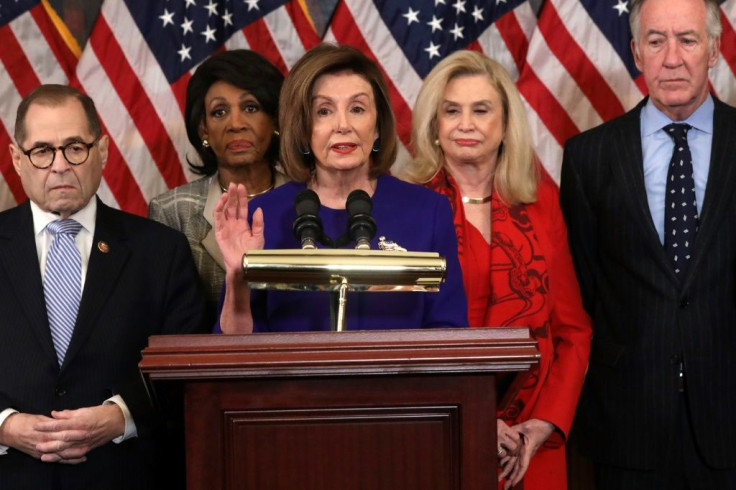Progressives, Swing-District Democrats Unite To Oppose Part Of Pelosi’s New Stimulus Bill

KEY POINTS
- Pelosi and Democrats passed the HEROES Act, a new stimulus bill, last week
- Progressives and a handful of moderates voted against it in protest of what it left out
- If this alliance lasts past this one issue, it could reorient House governance
Speaker Nancy Pelosi, D-Calif., has found resistance from an unlikely alliance of dozens of progressives and more moderate swing-district Democrats. They are all concerned that the HEROES Act passed out of the House last Friday is inadequate to address America’s exploding unemployment crisis. Progressives and ten “front-line” Democrats have introduced the Paycheck Recovery Act, authored by Congressional Progressive Caucus (CPC) co-chair Rep. Pramila Jayapal, D-Wash., which subsidizes company payrolls in order to discourage layoffs.
Pelosi previously said she was open to the idea, but she excluded it from the final version of the House bill. Jayapal, eight other progressives, and five front-liners all voted against the HEROES Act, citing the exclusion of this program.
According to The Intercept, the more moderate faction of Democrats are “concerned that Pelosi’s rejection of the paycheck bill, and her focus on unemployment, makes for poor politics, and they have complained that they are getting hammered at home by Republicans, who are dubbing Democrats the party of unemployment.”
Rep. Abigail Spangberger, D-Va., a centrist Democrat who voted against the HEROES Act, criticized the bill in a statement: “We must come together to build a targeted, timely relief package that avoids partisan posturing and instead prioritizes combatting our nationwide public health emergency, addressing catastrophic unemployment rates, and protecting the security of the next generation.”
The Democratic Congressional Campaign Committee (DCCC) names 42 “front-liners,” in swing districts. Pelosi and the House leadership have repeatedly stated that the wishes of these swing district Democrats, who hold the key to their House majority, should be prioritized in any legislation. Historically, she has provided lip service to the 90+ CPC members’ wish list while ensuring the front-liners get what they need in order to maintain their spot in the House, and if this new alliance has legs, it will dramatically reshape how bills get passed in the House of Representatives.
Due to the ultra-polarized nature of the House, Pelosi must rely entirely on the Democratic caucus to pass bills, and her strategy has centered on catering to moderates more likely to vote with Republicans than progressives who agree with the GOP on very little.
Pelosi’s resistance to passing a bill similar to those passed in countries like Denmark (where unemployment rates from the coronavirus pandemic are comparatively low) has isolated her on the left, and if this burgeoning left-center alliance extends past this one issue, it could dramatically reorient how governance gets done in the Democratic House for as long as the party holds a majority.
© Copyright IBTimes 2025. All rights reserved.





















